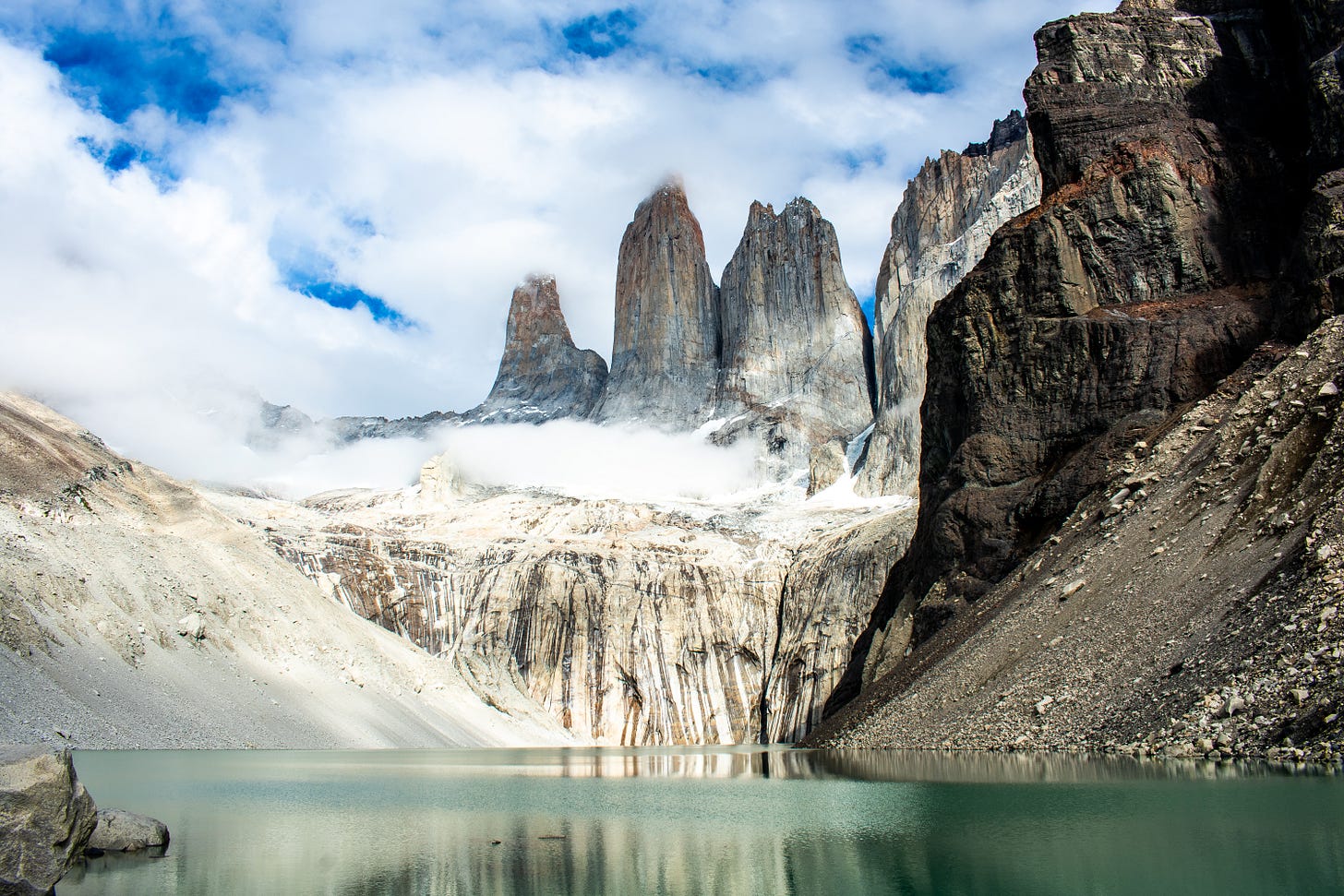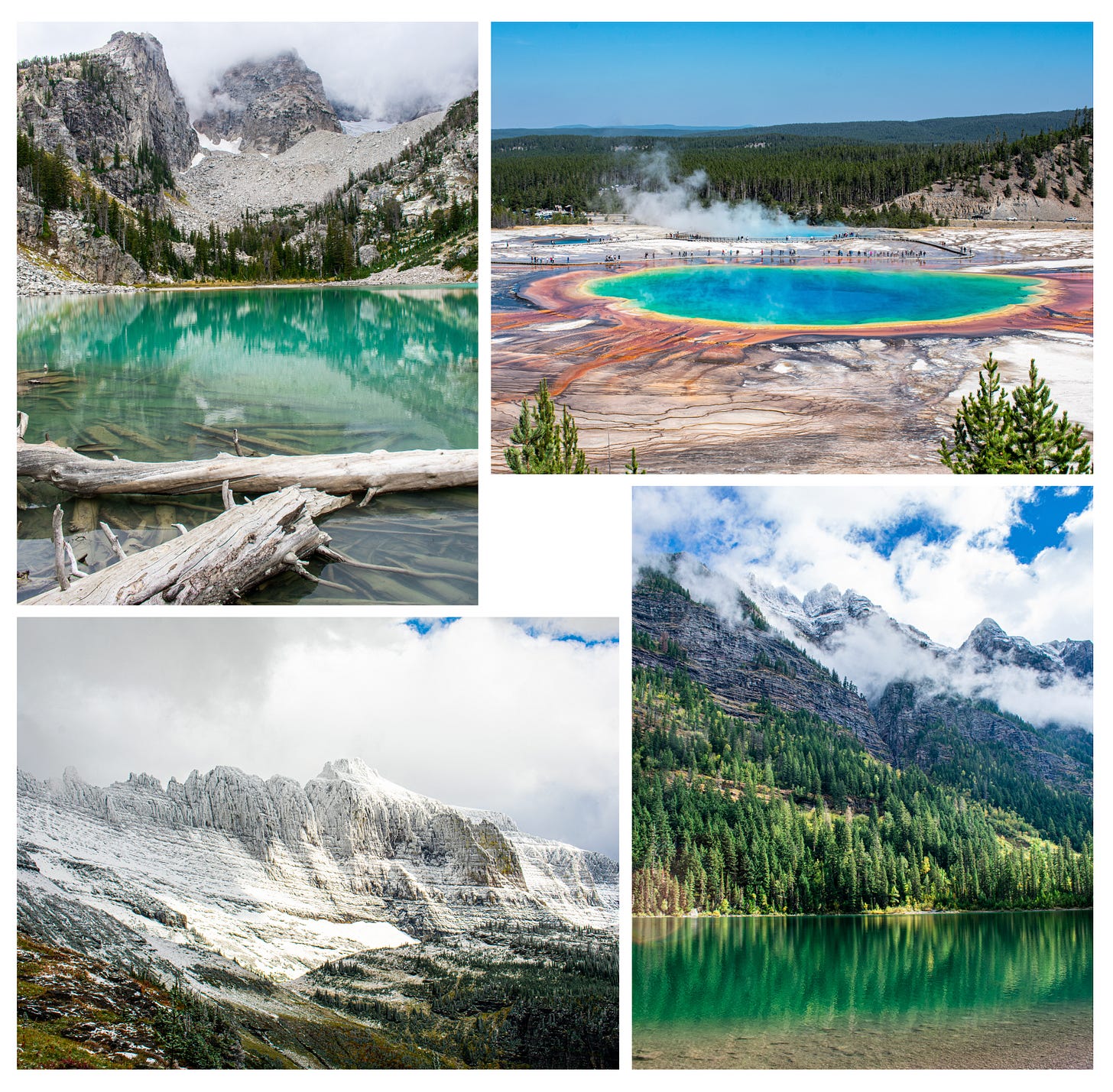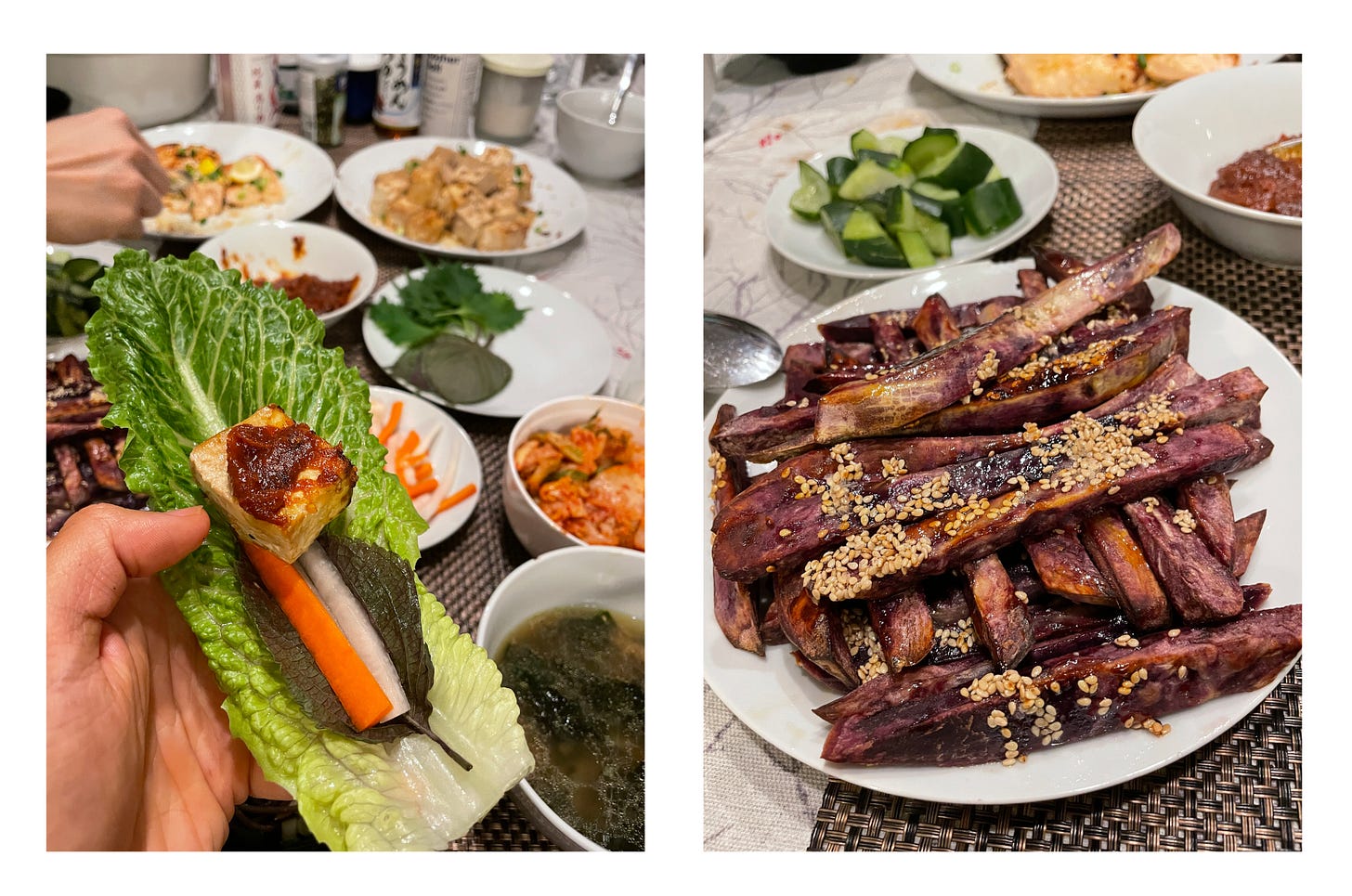#2: What is a nomad and how I became one
How I became less rooted
Aloha! I’ve been back in Hawaii for three weeks now and I’m finally getting into a rhythm. Last week I bought a moped on FB Marketplace and I’m stoked to finally not have to walk 2+ miles every time I want to surf. Making surfing convenient is crucial to me, especially since the south shore swell is picking up and I’m hoping to crank up surfing to at least 4-5x week if the conditions are fun. Over the last week or so, I’ve felt quite busy, but it hasn’t been from working too much; it’s from trying to do too many things and feeling in a rush going from one place to another. It’s a nice problem to have, but also a sign that I need to focus a bit more on the things that I actually want to do and say no to everything else. For right now, I’m choosing surfing, yoga, lifting, and anything that’s related to creating - whether it’s photography, writing, cooking, or anything else ✌️.
What is a nomad?
The Oxford dictionary defines ‘nomad’ as “a member of a people having no permanent abode, and who travel from place to place to find fresh pasture for their livestock.” In the early days of civilization, people were forced to be nomadic so they could follow their food. It wasn’t until the agricultural revolution in 8000 BCE that we learned how to grow crops and could finally settle down.
In modern times, the second definition is more suitable: “a person who does not stay long in the same place; a wanderer.” But even this is a broad term that ranges from the surf bum living out of their car to the Ivy League new grad who is backpacking around Europe for the summer before starting their investment banking job in New York. There’s also nuance because if someone moves to a new country and begins traveling there (like a yoga hippie in Bali), but then decides to stay, are they still a nomad even though they’ve committed to this new place? I think nomadism is an all-encompassing term that exists on a gradient, ranging from jumping to a new country every couple of days to staying in the same country and moving every few months.
In September 2020, my friend Jon and I drove from Denver to Glacier National Park and back in just two weeks. Each night was spent in a new town, and every morning we would work for a couple hours before driving 3+ hours to the next Airbnb. Neither of us took PTO so we had no choice but to make daily progress towards our destination while trying to not get fired. I would jostle around my calendar to free up a block of time to drive and while I was driving, Jon would take his sales calls from the passenger seat. To avoid having to work out cafes, I messaged and begged every single Airbnb host for early check-in and late check-out. It was an intense period of oscillating between working and driving, but was well worth it.
Other times the speed of travel is slower like right now in Hawaii. I’m here for three months and I have all the modern conveniences at my fingertips with an air conditioned high rise apartment that’s walking distance to the beach, grocery store, gym, and my friends. A month ago I was in Salt Lake City, living in a shared airbnb with no access to the kitchen. For three weeks, I alternated between Trader Joe’s soups and Chipotle bowls. I’m grateful to have a full kitchen and live within walking distance to the Japanese grocery store Don Quixote (or Donx if you’re a real one). Now that I have a kitchen, I’m trying to up my cooking game.
Over the past two years of being without a lease, I’ve lived in California, Colorado, Utah, New York, Hawaii, Lake Tahoe, Montana, Wyoming, and Alaska. The pace and intensity of travel has always fluctuated and I’ve come to realize it’s not about where I am, what I’m doing, or even who I’m with that defines my nomadic-ness. As cliché as it might sound, nomadism is a mindset and continuing to choose this state of being is based on my relationships with my environment, the people I care about, and my possessions. Writer and fellow nomad Venkatesh Rao describes the distinction between the rooted and the nomadic:
When voluntarily chosen, nomadism is not a profession, lifestyle, or restless spiritual quest. It is a stable and restful state of mind where constant movement is simply a default chosen behavior that frames everything else. True nomads decide they like stable movement better than rootedness, and then decide to fill their lives with activities that go well with movement. How you are moving matters a lot more than where you are, where, or will be.
How I became a nomad
In Feb. 2020, I went on a work trip to Seattle, London, Bangalore, and Taipei. Other than the short flight from San Francisco to Seattle, all the other flights were red eyes and since we were spending only 4-5 days at each city, we never fully adjusted to the local time zone before it was time for the next city. News outlets had just begun reporting on COVID and we all thought it would be over within a couple weeks. The only place we actually noticed a difference was in Taiwan where we got our temperature checked when entering every building.
The next week I was flying to NYC for what was supposed to be a six month rotation. That first week was amazing and I could feel the buzzing New York energy. The next two weeks were spent crammed in my Lower East Side walk-up working on a kitchen table so small that the monitor I ‘borrowed’ from the office barely fit. At night, you could hear the ambulance sirens throughout the night and things started to get scary. I pulled the plug on my New York life and headed back home instead of going back to San Francisco because I didn’t want to displace my subletter who was covering my rent.
In May, I was unexpectedly laid off and spent the next few months searching frantically for a new job. It was a stressful time to be unemployed because I had only ten months of full-time work experience and hiring had slowed down across the entire tech industry. All the jobs that I was applying for required 3+ years of experience so I honestly wasn’t even sure if I could find a job within a year (this was also peak COVID).
Fortunately, I got a new job three months after being laid off. I hit the road immediately and drove to Park City after being cooped up at home where it’s too hot to go outside until after 7pm during the summer. After a week in Utah, I drove to Denver simply because my friend Taresh had a spare room in his internship housing for me to crash at. I had no plan.
What I’ve learned from traveling - 3 stories
Trip #1 - Southeast Asia
During winter break of 2018, I went on a backpacking trip in Thailand and Vietnam with college friends. I was hesitant to go because I was a broke college kid paying for the trip with internship money. This was the first time I was traveling internationally without parents and felt like a big jump from what I was used to. I learned that when you travel, you’re confronted with problems at every turn - obstacles that you must resolve to get to the next step. You can avoid these problems by booking a tour group and having everything planned out for you, but this is all part of the fun and creates lasting memories. My college buddies and I dealt with obstacles like transportation airport to the hostel, getting cell service, exchanging US dollars for Thai baht, and the unexpected ‘what do we do when our friend falls off his moped, hits his head and has short-term memory loss’. From the three weeks of bouncing between hostels, eating street food, and buying liquor from Family Mart instead of getting drinks at the club to save money, I learned that travel can be affordable. You don’t need a lot of money, you just need to be stoked and carve out the time.
Trip #2 - Post-grad Patagonia
I graduated a semester early and had eight months to kill before starting my first job so naturally I decided to travel. After visiting Peru to hike the Inca Trail to Machu Picchu, my friends and I were supposed to go to Patagonia, but when all three of them bailed for different reasons, I decided to still go. It turns out Patagonia is over twice the size of California which makes it more of a vast region than a specific place. Torres del Paine National Park on the Chilean side is a must-see and the only way to get the full experience is to spend multiple nights inside the park. While most people plan their trip 6-12 months prior, I started looking into Patagonia two months before my flight.
The day before I arrived at the park entrance, I shopped at a local grocery store in town and bought a couple bags of trail mix, a loaf of bread and a jar of Nutella. I lived off of mostly bread and Nutella for a few days which definitely can get old when you eat it for breakfast, lunch, and dinner. In order to minimize environmental impact there are designated campgrounds along the main route, but since I wasn’t able to secure a spot for my second night, on Day Three I had to cover double the distance. Along the way, I met travelers from all over the world, ranging from South Korean retirees to German newlyweds on their honeymoon. The problems that I encountered probably should have reinforced the necessity of proper research and planning. However, I’m stubborn so if anything it taught me that I can live with less than what I think I need and an adventure can still come to fruition without having all the details figured out.
Trip #3 - The magic of living in the mountains during ski season
When I was still in school, we would ski in Lake Tahoe and do day trips to avoid paying for lodging. I was one of the few people who had a car, so that meant I had the pleasure of driving us there and back. The morning alarms would fire off at 4am so we could be on the road by 5am. We would ski the entire day from 9am-4pm, grab In-N-Out in Sacramento on the way back, and be home before 9. To us, driving 8 hours to ski all day was exhausting, but worth it.
Fast forward to the 2020-2021 ski season when I lived in Park City, Utah and Frisco, Colorado with various pockets of friends. Living within a short drive to the ski resort was a game-changer compared to the Tahoe day trips. Back when we were broke college kids, skiing always came with the sense of urgency and pressure to get our money’s worth by skiing nonstop since we were only there for a day at a time. Having a month in each location provided a sense of calmness and patience that I was unfamiliar with. I went from waking up at 4am to ski on a busy weekend with the rest of the Bay Area to having the luxury of taking my time to make breakfast and ski a few morning laps before my first meeting. There was no longer the pressure to ski all day because we could always come back tomorrow.
By having a home base in the mountains, we were able to plan our big ski days around the snow forecast. In the past when I had a lease in the city, we would have to make plans at least a couple weeks in advance and accept whatever conditions we were given. Now we could check the weather and optimize our schedule to have the most fun. On the down weeks we would only ski a couple times and focus more on work or just relax. Then during the snowstorms we would go hard. One time there was a stretch where it was constantly dumping so we ended up skiing eight out of nine days.
I used to have the misconception that being able to ski double black diamond runs meant that not only I was an advanced skier, but also that I was close to running out of room to grow. Spending an entire ski season immersed in the mountains showed me how wrong I was. We skied with a guy that grew up in Vail and was on the high school ski team. They would ski 100 days a year and he knew the terrain like it was his backyard. Once we got off the lift, he would lead us somewhere off-piste and it was humbling just to try and keep up with him.
Having the privilege to live more flexibly showed me a different side of skiing which has led to a much deeper appreciation for the sport. Through surrounding myself with better skiers and exposing myself to steeper, gnarlier terrain, I remain in awe of how much more there is to experience.
It’s a gradual progression, not a leap of faith
One key difference between the rooted life and the nomadic life is travel. If you examine ‘travel’ under a microscope, you’ll realize that it encapsulates several different components, all of which can be broken down into skills. Finding cheap flights, booking lodging that’s both affordable and comfortable, and navigating unfamiliar places are all important skills that make a trip successful. Every person starts with no experience and has to start with something within their means. As we travel, we learn, and things that were once daunting like figuring out how to get from the airport to the hostel start to resemble a task we’re familiar with like taking out the trash or washing the dishes.
My transition from SF tech bro to adventure-seeking nomad was a gradual series of baby steps rather than one leap of faith. It wasn’t a singular decision that I made overnight, but rather a steady progression of expanding my comfort zone to take on bigger and more ambitious objectives over time. Rather than jumping straight into a solo backpacking trip in a foreign country, maybe start with something more approachable like a weekend trip to the nearest national park and then go from there. Leading up to March 2020 when the world was flipped upside down, I already found nomadism fascinating and had traveled a fair amount, so being unshackled from an apartment lease and office desk was simply the catalyst. After being cooped up at home for months and being able to work remotely, living on the road felt like the most natural for me.
📚 What I’m reading
Vagabonding: An Uncommon Guide to the Art of Long-Term World Travel
I started reading this because I’m currently planning a few big trips for later this year. It’s loaded with tactical details on how to travel and common mistakes to avoid, but it also covers deeper topics like the mindset of the Traveler vs. the Tourist . The anecdotes and stories from other travelers are a close reflection of how I feel when I travel, but sometimes have trouble articulating.
🎥 What I’m watching
Everything Everywhere All at Once
A rare juxtaposition that strikes a balance between outrageous silliness and deep philosophical life advice. This is one of the most creative movies I’ve seen and I appreciate the thoughtfulness that went into the camera movements and visual details that would only appear on screen for a split second.
🎵 What I’m listening to
After my roommate mentioned he had tickets for Tash Sultana at Red Rocks, I started re-listening to them. I usually categorize songs into two buckets - songs to workout to and songs to work/study to. But now I’m realizing I need a third bucket - songs for when I desire to be creative.
🙏 Shoutouts
Yixuan for visiting me in Hawaii and reminding me to appreciate the small things like the chubby fish in the pond, the random baby chicks that follow their mother chicken all over the island, and the magic of rainbows.
Friends who reached out after I shared my first post. The inertia associated with trying something new or putting yourself out there is heavy and often holds us back from exploring the unknowns. I’m just getting started and receiving words of encouragement are super energizing.
Leave a comment or message me on Twitter if you have any questions/feedback/ideas!






Incredible! So beyond proud of this piece of work. Feeling so very grateful to have experienced a tiny sliver of the island life with you. Excited to see where life takes you next and the many people you'll continue to inspire with each new adventure :)